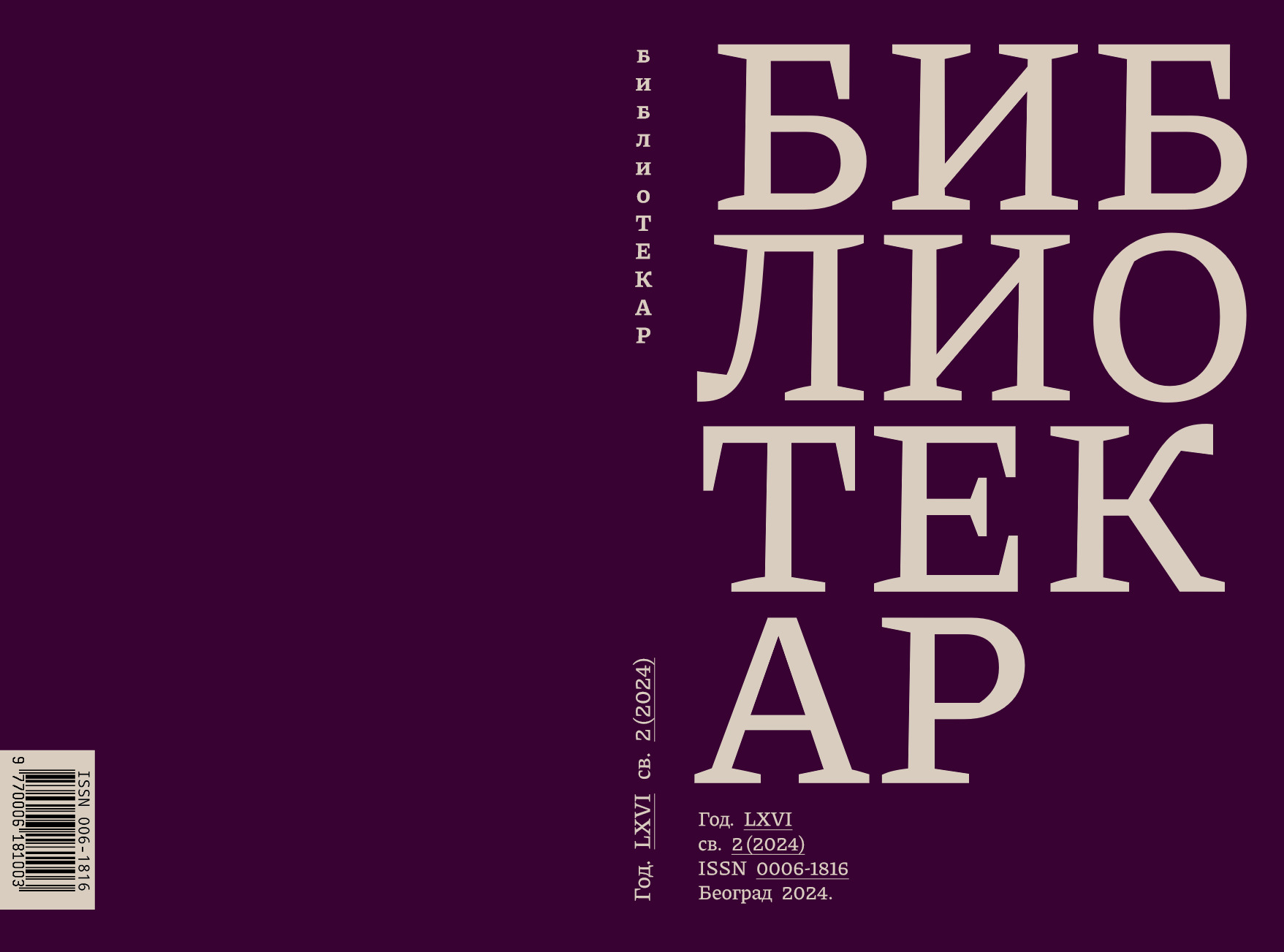WHY THE LIBRARY CANNOT REMAIN THE SAME, OR A DILEMMA FOR THE MANAGER
DOI:
https://doi.org/10.18485/bibliotekar.2024.66.2.3Keywords:
library, digital revolution, information, knowledge society, intelectual interaction, educational programs, creative self-realization, knowledge exchange, space, tools, leader, transformation, outdated model, demand, statistical dataAbstract
The paper addresses library managers and examines the current
state and development prospects of libraries in the era of the digital revolution. The author analyzes changes in the way information is created, stores, and disseminated, as well as the impact of these changes on the role of libraries in society. There is a notable decrease in demand for printed publications and a corresponding reduction in their production, which leads to a decrease in the total number of libraries and the reduction of staff, space, and financial allocations. It is argued that the traditional library model based on providing access to the collection is becoming outdated and does not meet the needs of modern society. It is proposed to rethink the mission of libraries, considering them as open communication spaces where intellectual interaction takes place and creative initiatives are implemented. Potential directions for the development of libraries are also touched upon, including the activation of knowledge sharing, the provision of space for creativity, and the implementation of train ing programs. The author emphasizes that the choice between maintaining the traditional model and moving to a new one depends on library leaders and their readiness for change.
References
Zemljanova, L. M. Zarubežnaja kommunikativistika v preddverii informacionnogo obŝestva: tolkovyj slovarʹ terminov i koncepcij. Moskva: Izdatelʹstvo Moskovskogo universiteta, 1999.
Rossijskaja gosudarstvennaja biblioteka; Rossijskaja knižnaja palata. Statistika pečati. Statističeskie pokazateli 2023 goda. Мoskva, 2024.
AIS «Statistika»; GIVC Minkulʹtury Rossii. Osnovnye pokazateli raboty otrasli: Statističeskie dannye po vidam učreždenij kulʹtury, iskusstva i obrazovanija. Мoskva, 2024. stat.mkrf.ru/indicators (preuzeto 28. 7. 2024).
Flood, A. „Britain has closed almost 800 libraries since 2010, figures show”. The Guardian. Dec. 6. 2019. https://www.theguardian.com/
books/2019/dec/06/britain-has-closed-almost-800-libraries-since-2010-figures-show (preuzeto 10. 2. 2023).
Nejman, F. „435 bibliotek har lagts ner – på 22 år”. Vi. 29. apr. 2022. https://www.vi.se/artikel/sN1dDomY-aN9ZPzgp-455c5 (preuzeto 9. 2. 2023).
Downloads
Published
How to Cite
Issue
Section
License
Copyright (c) 2024 The Librarian: The Journal of Theory and Practice of Librarianship

This work is licensed under a Creative Commons Attribution-NonCommercial-ShareAlike 4.0 International License.


